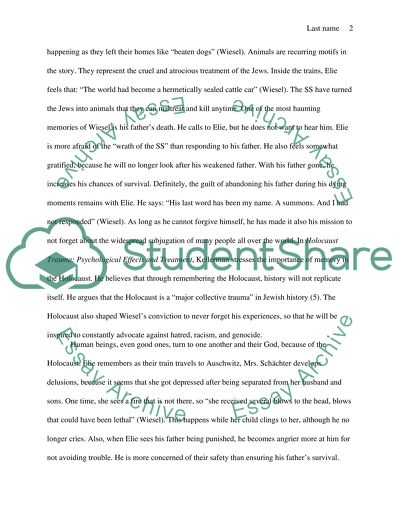Cite this document
(“How the Holocaust Influenced the Work of Eli Weisel, and the Winning Research Paper”, n.d.)
How the Holocaust Influenced the Work of Eli Weisel, and the Winning Research Paper. Retrieved from https://studentshare.org/literature/1451907-how-the-holocaust-influenced-the-work-of-eli
How the Holocaust Influenced the Work of Eli Weisel, and the Winning Research Paper. Retrieved from https://studentshare.org/literature/1451907-how-the-holocaust-influenced-the-work-of-eli
(How the Holocaust Influenced the Work of Eli Weisel, and the Winning Research Paper)
How the Holocaust Influenced the Work of Eli Weisel, and the Winning Research Paper. https://studentshare.org/literature/1451907-how-the-holocaust-influenced-the-work-of-eli.
How the Holocaust Influenced the Work of Eli Weisel, and the Winning Research Paper. https://studentshare.org/literature/1451907-how-the-holocaust-influenced-the-work-of-eli.
“How the Holocaust Influenced the Work of Eli Weisel, and the Winning Research Paper”, n.d. https://studentshare.org/literature/1451907-how-the-holocaust-influenced-the-work-of-eli.


